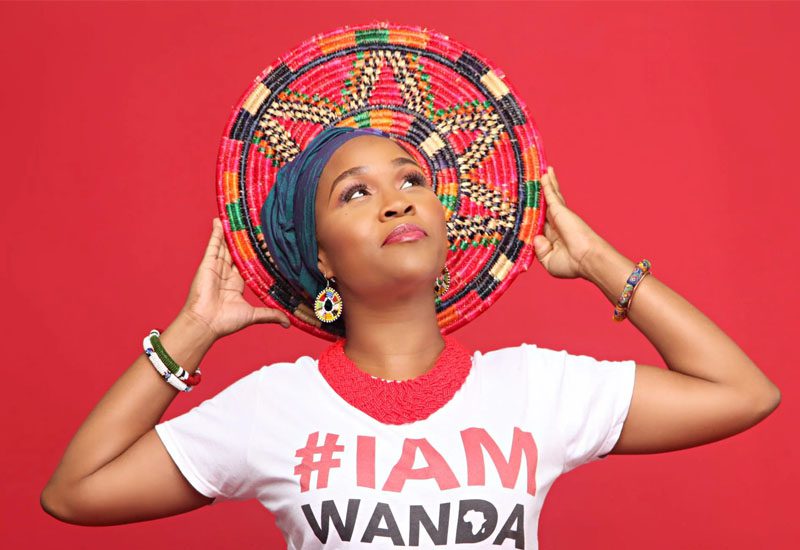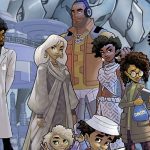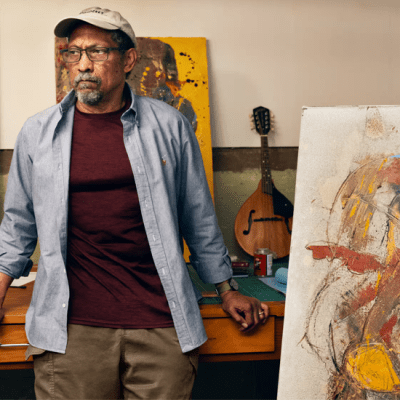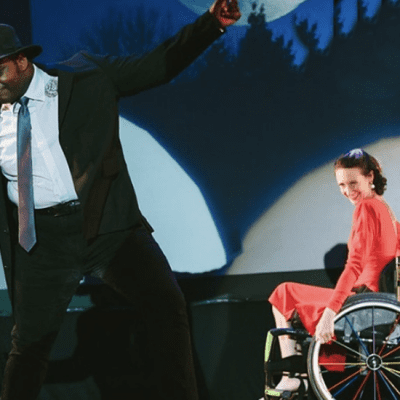
Washington D.C.-based food advocate and driven mother Tambra Raye Stevenson has been determined to create healthier communities through her inspiring work with the Food Bill of Rights. Fueled by Michelle Obama’s Let’s Move Initiative, which aimed to improve children’s diets, Tambra founded WANDA: Women Advancing Nutrition Dietetics and Agriculture.
Her late father, Calvic C. Hill, Jr., paved the way for her own path. As an advocate for healthy eating and a firefighter, his passing strengthened Tambra’s commitment to promoting healthy food choices and making a difference through her career by serving others.
To become a leading voice for food justice, particularly among women and girls from the African diaspora, she has had to overcome various obstacles. Tambra’s work reveals the connection between food, culture, and representation, and changes the narrative to a more empowering one: African heritage foods and our women hold the power to improve the health of our communities. Diet-related diseases are a “collective struggle for the soul of our communities,” rather than just a battle on the individual level.
A key moment for Tambra was when her daughter had developed a cavity at a young age. This prompted her to bring a healthier relationship to food within the classroom setting, highlighting the importance of policy changes and community involvement in creating thriving environments. Through WANDA, Tambra seeks to educate and empower women and girls to champion nutrition.
“One of the first things we did was develop a bilingual children’s book series called Little Wanda Finds a Cure for Nana,” said Tambra in an interview with Clean Eating magazine. “Our girl character who represents Brown and Black communities shows our culture through an empowered lens: our food is our superpower. Little Wanda uses millet and hibiscus to make indigenous foods and drinks to help heal her Nana. The creation of the storybook flowed into developing a puppet, we have a patent design for a talking doll and we’re developing programming for children and families.”
Dr. Gail C. Christopher, Executive Director of the National Collaborative for Health Equity, understands the importance of the work Tambra is doing. “This framework [of the Food Bill of Rights] provides a holistic declaration and fosters a comprehensive understanding of the power of food to create health and well-being at the individual and societal levels. It is a breakthrough contribution and will catalyze transformational work to achieve food justice.”
Tambra hopes that her story and WANDA encourages people to challenge the norms, demand better food policies, and work with political leaders on these critical issues. Her academic achievements and research in media, technology, and democracy have further fueled her advocacy. Tambra’s ultimate goal is to create a world where every family can thrive in abundance, health, and justice.
Her journey, from a childhood fascination with food to becoming a leading advocate, showcases resilience and a deep commitment to community well-being. Tambra’s legacy embodies empowerment, community engagement, and an unwavering dedication to building a healthier future for generations to come.
Over the past decade, she has been actively involved in promoting health and economic initiatives. Her experience includes working in various capacities, such as the Office of the Secretary at the US Department of Health and Human Services, the US Department of Commerce, the DC Mayor’s Office on Women’s Policy and Initiatives, and the University of the District of Columbia’s Center for Nutrition, Diet, and Health.
Prior to WANDA, she delved into the nonprofit sector by establishing NativeSol Kitchen. This program focuses on creating educational cultural programs centered around African foods and nutrition.
To learn more about WANDA and Tambra’s work, visit IamWanda.org and follow her on Instagram @TambraRaye.







